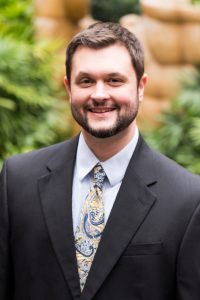Andrew Selepak Comments on Social Media Accountability and the Spread of Misinformation
Andrew Selepak, University of Florida College of Journalism and Communications Telecommunication lecturer and coordinator of the online master’s program with a specialization in social media, is quoted in “Gov. DeSantis Signs Bill Aimed at Holding ‘Big Tech’ Firms Accountable for Banning, Blocking Accounts” posted on firstcoastnews.com on May 24.
The story focuses on a bill signed by Florida Governor Ron DeSantis that could impact the ability to access and participate in online platforms.
“Essentially what [the state] is trying to do is pass a law that’s going to impact a global company,” said Selepak. “You have to look at interstate commerce laws, at the First Amendment, a lot of legal issues. The Communications Decency Act, and specifically Section 230, treats [the companies] as platforms rather than publishers, and was created before social media.”
And even though users agree to terms of service when they join a platform, Selepak said those terms are malleable and companies can change them freely.
Selepak is also quoted in “Why Did the U.S. Block the UN from Enforcing an Official Ceasefire?” posted on tickernews.com on May 21. According to Selepak, social media impacts how we see world events, including the unfolding situation between Israel and Hamas.
“There is a lot of potential for false information…. that potentially is going to lead to more conflict,” he said.
Selepak was also featured in an Australian television Ticker Live newscast on May 20 about Israel Gaza conflict information on social media. He said there is a lack of context on social media due to platform limitations. He believes that Big Tech has a tremendous responsibility to watch out for fake news and prevent the spread of misinformation.
“Celebrities are now commenting on the situation and it’s a problem because it’s so easy for a video to go viral,” he said. “Some are driving the narrative on something they don’t really understand.”
Andrew Selepak, University of Florida College of Journalism and Communications Telecommunication lecturer and coordinator of the online master’s program with a specialization in social media, is quoted in “Gov. DeSantis Signs Bill Aimed at Holding ‘Big Tech’ Firms Accountable for Banning, Blocking Accounts” posted on firstcoastnews.com on May 24.
The story focuses on a bill signed by Florida Governor Ron DeSantis that could impact the ability to access and participate in online platforms.

“Essentially what [the state] is trying to do is pass a law that’s going to impact a global company,” said Selepak. “You have to look at interstate commerce laws, at the First Amendment, a lot of legal issues. The Communications Decency Act, and specifically Section 230, treats [the companies] as platforms rather than publishers, and was created before social media.”
And even though users agree to terms of service when they join a platform, Selepak said those terms are malleable and companies can change them freely.
Selepak is also quoted in “Why Did the U.S. Block the UN from Enforcing an Official Ceasefire?” posted on tickernews.com on May 21. According to Selepak, social media impacts how we see world events, including the unfolding situation between Israel and Hamas.
“There is a lot of potential for false information…. that potentially is going to lead to more conflict,” he said.
Selepak was also featured in an Australian television Ticker Live newscast on May 20 about Israel Gaza conflict information on social media. He said there is a lack of context on social media due to platform limitations. He believes that Big Tech has a tremendous responsibility to watch out for fake news and prevent the spread of misinformation.
“Celebrities are now commenting on the situation and it’s a problem because it’s so easy for a video to go viral,” he said. “Some are driving the narrative on something they don’t really understand.”
Posted: May 25, 2021
Category: Alumni News, College News
Tagged as: Andrew Selepak


